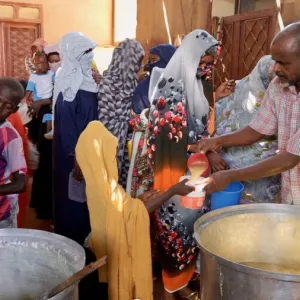More than a year of conflict between the Sudanese Armed Forces and the Rapid Support Forces has weakened the country’s fragile economy. This is in addition to triggering a humanitarian crisis, loss of lives, property destruction and income disruptions.
Even before the current conflict, Sudan ranked among the poorest countries in the world. The proportion of those without access to basic necessities such as education, healthcare and proper living conditions was estimated at 52.3% of the population.
The economy heavily depends on agriculture. The sector’s productivity has been low because of traditional pastoral systems and limited mechanization. The armed conflict has damaged infrastructure and disrupted agricultural services and industries. Production of major food security crops like sorghum and millet has fallen 42% and 64% due to shortages of electricity, fuel, improved seeds, fertilizers and financing. The livestock market has struggled with disrupted trade routes. Manufacturers, especially agro-processing firms, have closed temporarily or permanently.


